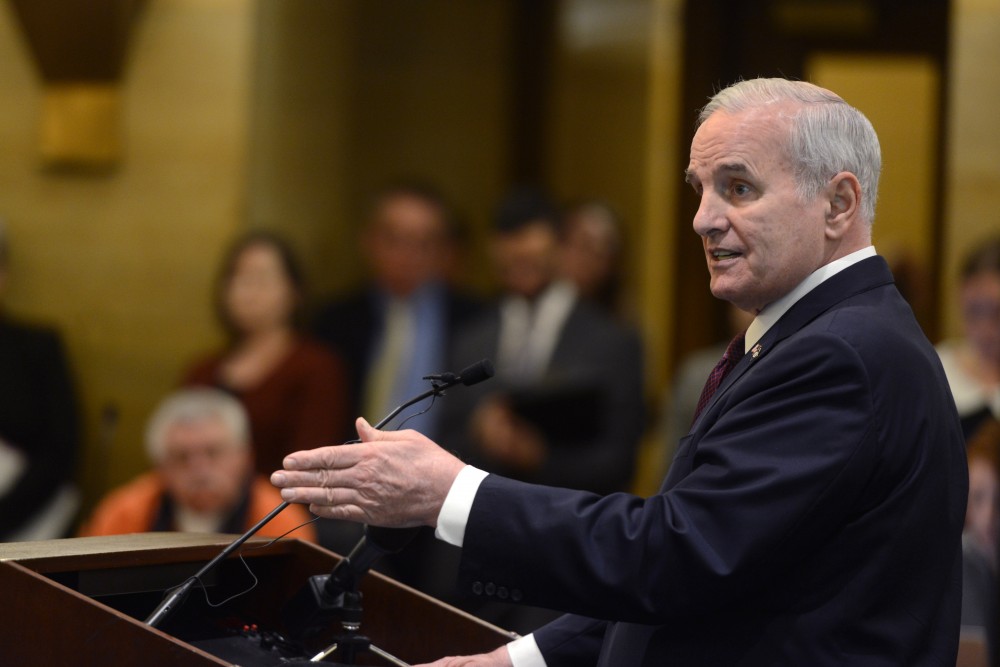The Minnesota House and Senate want to give the University of Minnesota significantly less funding than it requested.
The University asked for a $147.2 million increase over the biennium, but the House recommended $22 million, while the Senate suggested a $29.6 million increase, according to higher education omnibus bills released last week.
Gov. Mark Dayton recommended in January the University receive $96.8 million.
University officials say the lack of investment will likely require a tuition hike to cover the costs.
The lack of support for the University’s core missions and student success initiatives puts “upward pressure on tuition,” University associate vice president for budget and finance Julie Tonneson said at a House higher education committee hearing Thursday.
The University will search for opportunities to reduce costs and make internal reallocations, but the school still needs to compensate for the lack of funding, she said.
“We cannot cover everything through that mechanism, and we will need additional revenues through tuition increases and/or increased state investment,” Tonneson said.
Rep. Ilhan Omar, DFL-Minneapolis, said in an interview that the House higher education committee — which she sits on — didn’t prioritize students enough.
But Rep. Bud Nornes, R-Fergus Falls, chair of the House’s higher education committee, said they weren’t able to fully fund any of higher education requests.
Omar said with a large state surplus, there was an opportunity for greater investment in higher education.
“We heard time and time again from higher [education] institutions that came to present talking about what cuts would mean to them, what it would mean for the students that they serve,” she said.
The House higher education omnibus bill also included provisions prohibiting mandatory student activity fees and requiring public post-secondary institutions to admit applicants who graduate in the top 10 percent of their high school class.
Prohibiting mandatory student fees would negatively impact student groups, Will Dammann, Minnesota Student Association government and legislative affairs director, said at the hearing.
Rep. Gene Pelowski, DFL-Winona, voiced similar concerns at the meeting, saying the mandates would cause “unintended increases in costs to students and campuses to make sure certain programs and student activities are maintained.”
Rep. Jennifer Schultz, DFL-Duluth, also expressed worries over the higher education investment at the hearing.
The operations and maintenance funding for the University included in the House omnibus bill doesn’t keep up with inflation, Schultz said.
The University and Minnesota State will have to keep increasing tuition if the state can’t fund the systems enough to offset inflation, she said.
Pelowski said he was concerned the current allocations may decrease because of a nearly $50 million difference in the House and Senate’s budget targets.
“There are major concerns in this bill, and the concerns will continue if the negotiations move down toward that Senate target,” he said. “Then there would be significant concerns with tuition and debt.”
Nornes said the committee will hold firmly to its current targets. “We’re going to be tough negotiators.”








